New Juche, Mountainhead, Nine-Banded Books, 2017.
newjuche.wordpress.com/
‘The reader may be disgusted by my behaviour and its rubric, and feel that I am defiling the mountain like a piece of grit in your eye. But I belong now in this place, I’m attached to it. The mountain dictates my behaviour as the soil does a worm’s. Can you understand that? What I’m doing here is valid and harmonious.’ — New Juche
Dennis Cooper has described New Juche as “one of the most inspiring, original and groundbreaking artists working today,” and Mountainhead is arguably the elusive writer/photographer’s most accomplished work to date. Within the structure of a sexually charged exotic travelogue, we discover prose that is at once repulsive, lyrical, and deeply sensual; that is anchored by a raconteur’s instinct for gritty storytelling, yet punctuated by liminal flights of feverish imagination. Mountainhead deftly interlaces personal confession with an unsettling disquisition on pornography, photography, prostitution, the body, identity, and place. In its cascading momentum, readers are confronted by a vertiginous exposition of interpersonally fraught revelation and deception that remains implacably wedded to the thematic emblem of nature as moral alibi.’ — N-BB
‘Like Athena from the skull of Zeus, this is a fully-formed work, a confident work. Mountainhead will be an unexpected shot from a cannon and I feel it is destined to fall into the hands of readers looking to read a jungle extension of Bataille and Kosinski. Yet it is truly a singular work, sui generis, a giant black obelisk in the middle of nowhere. The entire time I was reading it, I was thinking: this is a fucked up secret and I wish I could share it with someone else!’ — James Nulick
What follows is the transcript of my email interview with New Juche, whose extraordinary memoir Mountainhead was published by Nine-Banded Books in early April, 2017 (it's also available on Amazon). For an artfully arranged introduction to New Juche's singular body of work, Dennis Cooper's recent “Welcome to the World” post is a very good place to start.
__________
NINE-BANDED BOOKS: I don't want to make assumptions, so maybe I should begin by asking: What does “New Juche” mean? I'm vaguely familiar with the term “Juche” (pronounced Chuch'e) in its North Korean ideological context. Is your nom de guerre a subversive appropriation?
NEW JUCHE: The first edition of my Whores of Leith EP was released by a friend's label in 2005. He took the project on faith, without listening to it first, and after it came out he publicly regretted ever being involved and was very disapproving, even disowning, along with many of our peers. I was embarrassed and hurt by this, but confident in what I was doing. The EP sold out, and I wanted to re-release it along with a new CD, so I decided to do it myself on my own label, which I called NEW JUCHE. I had a strong hobby-interest in North Korea at the time, and figured that the concept of "Juche," in addition to the material reality underneath the term, was highly appropriate to my circumstances and approach. It was slightly facetious, but the name has just stuck, and become a sort of nom de guerre as you say.
For more than a decade, you have produced art – recordings, paintings, photography, literature – under this name. Do you find that the use of a pseudonym is somehow important and necessary? Do you have something to hide?
I wish to keep my bread-winning and literary activities separate, for obvious reasons. But aside from that, even though the CDs are embarrassing to me now, they are undeniably the beginning of my writing life, so to speak, as it is today and as I imagine it will continue. So it seems right to stick with the name.
The painting was done by an artist of friend of mine in Leith, not by me.
Thanks for the correction. Can you describe the relationship between your recordings – and for that matter, your photography – and your development as a writer? Do you see writing as a culmination or graduation of form, or is it all connective tissue bound to the same imperative?
I like this phrase of yours about connective tissue. But I think of myself as a writer, and the CDs as a sort of larval stage. Although I still like some of the sounds I made, the first CD would have made a much better book, and the second CD is more or less contained within Mountainhead. I suppose that because of the culture I was coming from, making CDs seemed at the time a lot more feasible and realistic – and less pretentious – than trying to write a book. Like I give a fuck now. I always liked taking personal photos. Using photos and images with writing has developed in tandem with my job, which requires me to use photography very carefully. To make substantive points. But I really came into it with Wasteland. The difficulty and personal weight of what I was trying to talk about in that book was much, much more efficiently handled with the combination of the the writing and those images, and some of them, many of them, were really given to me, put inside me by that place, which I miss very much.
The photographic thread in Mountainhead consists of natural images – forest scenes, flowers, foliage and bugs. The absence of human subjects is conspicuous.
These few photographs where taken on the mountain where I was living. Their inclusion as dividers helps underline my location there, due to the frequent flights of memory. I had moved there in deliberate retreat from the city, and both the beauty and the physical demands of the location in part replaced my social life, which was certainly the aim. But contrary to my expectation, the solitude and that specific environment actually made me even more of a pervert. This was a fascinating and slippery process. Perhaps the reason is that in review, I increasingly afford my physical habitat more agency than any people I rub up against.
When did you realize that you wanted – or needed – to express yourself through writing? Can you locate formative experiences? Influences?
I always liked reading, writing and drawing, all of which got me in a lot of trouble at school. Because of that I guess, there is a clandestine guilt and excitement for me in the act of writing, as in early childhood masturbation.
Of course there are lots of writers and artists I love. However, it’s difficult to think of a single book that has been more powerfully influential in my world than Miracle of the Rose by Jean Genet. This book made such perfect sense to me, it was so familiar, in its project of subjecting a physical environment and all the rituals dictated by it to a highly selective process of sexualization and beautification. I am equally seduced by Prisoner of Love, in which his age and his maturity as a writer balance Miracle of the Rose. Prisoner also contains many unexpected, provocative issues for anthropology. I’m pleased that some anthropologists acknowledged and discussed Genet’s last book, including Clifford Geertz.
Anthropological work itself has exerted some influence, especially with regard to technique. Doing long periods of work, you’re encouraged to keep a laborious field-journal. This helps you process observations and work out subjective difficulties, and gives you an exhaustive source of reference for when you write papers and reports. A lot of my non-academic writing has grown directly out of my field journals.
A kind of sexualized extrapolation from physical environments – especially architecture – figures in much of Peter Sotos' recent work, where Genet's shadow also looms. Do you find value in his writing?
Most certainly. Moreover I usually intuit that he is addressing me personally.
I think there are many bad ways to shorthand Mountainhead, and perhaps the most reductive is to describe it as a travel memoir. But I actually like this because it poses a bait & switch, yet it's also inescapably accurate. An obvious question: Why Southeast Asia? What was the lure?
Fifteen years ago I fell into some cash, and was persuaded to let some of it go in Vietnam, via Thailand. Once there, I quickly decided there was simply no question of ever living anywhere else again. At first I really didn't care as to whatever circumstances that might entail. I went back home and sold everything I owned while working two jobs, and returned some months later with a little over four grand, intending never to return. There are countless reasons why this was the right decision, but in a nutshell, at the time, it was simply a desire for adventure – a richer life in an intoxicating place.
The status of my relationship to this place and my residence there was an obsession from the beginning. I learned languages and read and explored, to the point where I was able to do anthropological work, which engages me to the present day. I also became very ill, which heavily affected my lifestyle and my capacity to do evil. Mountainhead discusses this transition, which coincided with my moving north from the city, up into the mountains. The book is foremostly about prostitution and this transition.
Obsessions don't form in a vacuum. You may disagree, but I think most people, upon encountering your work, will first be struck by the depiction of squalor and abjection – which is presented, perhaps more disturbingly, in continuum with the natural world and at near remove from a disinterested anthropological stance. I don't mean to suggest that the effect isn't also lucid and human and even beautiful, because it absolutely is, but do I want to probe the idea of “a desire for adventure” in a context that of necessity involves prostitution, deformity, poverty, and self-inflicted illness. You can run with this any which way, but since you brought up the word “evil,” however facetiously, maybe that's a good place to start: Can your direct engagement with “exotic” people and places be understood as transgression? It seems that moral implications – or ambiguities – can be located throughout the text of Mountainhead, most clearly in the dialogue sequences.
I've always loved and reveled in prostitution. I lost my virginity to a prostitute, and I know that now as then, prostitution offers the least adulterated form of physical happiness. The category of prostitution has for me, out of necessity but also honestly, become so bloated and inclusive that it describes my entire history – I'll never betray it as long as I live. This is my whole subject. Sex is linked inextricably with place, as prostitution is with poverty. I love poverty, but coming back to Europe and even to Britain has been exotic. I'm a very susceptible person, and prone to powerful bouts of Stendhal Syndrome if the environment turns me on. Whilst adventure, for me, is riding a motorcycle.
I don't feel like loving foreign prostitutes and other unfortunates is in any way transgression, or at least in any personal sense. Moreover, the most honourable things I've done that I'm very proud of include these. The act of conversation, especially within and about prostitution, and various economic factors, these certainly do contain enormous difficulties for me. Sometimes I feel like the disgusting impurities of conversation have leaked or percolated into my writing; that my writing has become like this horrible conversation. So I address that head on. But I don’t deny that sometimes I paint sex a different moral colour. Earlier in my life I had to earn money against everybody else, and in that direction lies the regret I struggle with and dump on whores, my evil.
My health has been in decline since I turned thirty, getting on ten years. I suffer from a hereditary disease that is by far the worst of my problems, but of course my lifestyle has taken bites out of me too. I'm cool with it, I've used a lot of energy and am still alive.
Concerning your health, I shouldn't have been so presumptuous. My apologies.
Not at all.
When you mention "difficulties,” I am reminded of a line from Mountainhead: “You and your rape stories and your dead sisters and Pol Pot were all just my own private art gallery...” To me, this suggests a kind of reckoning, however shaded, with a more expansive situation. I hesitate to approach Mountainhead through a political lens, yet we might anticipate that your work will be viewed as “problematic” – to use a ruined word – by critics who are reflexively inclined to condemn a record of privileged slumming or western trespass and exploitation. If that's too crude, a more nuanced geopolitical interpretation might be tempted by comparative reference to Michel Houellebecq's contrastingly detached narratives of borderless sex tourism (even if these are differently framed and blunted by the pretense of fiction), or by reference to Antoine D'Agata's indemnifying photographic annotations. In any case, I think it's clear that you are acutely aware of your rank as an outsider, and of such implications that might therefore invite or mitigate a kind of judgment that extends beyond the personal. And I think this awareness is complicated at turns. I suppose this could be a minefield, but maybe I can open it up by simply asking about the question of artistic responsibility and the penumbra of “the political” in relation to your project? Is there anything to say, preemptively or otherwise?
Things are as real as they affect other things – as in “my own private art gallery.” This is a world in which illiteracy has a scrupulous value, especially in the evening. I can’t ignore rape as military strategy when it’s so indubitably a determining factor in a friend’s downward turn. In terms of responsibility, I want the language I’ve made to correspond to my vision and experience, just as much so when these appear mistaken or flawed in retrospect. I’m still working on that. The section that quote comes from describes a sorry episode. It’s in the book because I count it amongst the determining factors in my own upward turn, so to speak.
I’m heavily put off by writers who contrive to smear themselves into broader conversations, whether it’s intended to demonstrate piety or cynicism. But – and this is what I’m talking about with this heavy vendetta I have against conversation – I perceive some piety in precisely what I’ve just said. There's a BBC documentary in which a collection of lazy English middle-class twenty-somethings are chaperoned around Patpong, and have delivered to them a stage-managed encounter with a young “prostitute” in a pole-dancing outfit who relates the usual sob story through an interpreter and then weeps as she takes questions from the group. This all occurs in the heart of it, with tourists and bar girls all around and loud music. Worked up into a pious rage, one of the English females gets into a wild verbal fight with a passing American tourist, who tells her she is a “phony” who doesn't understand that “prostitution” empowers these girls, and that they all want to be there, etc. Not unlike a Houllebecq character. They both present as obnoxiously ignorant to me, but their platitudes are clearly born out of the respectively limited vantage and degree of their insight. This is demonstrative of how the flimsy insipid social politics of dim-bulbs can rarely come down to rest on the actual ground, especially in places like this. And again why conversation is undesirable. I’ve heard endless nights of rationalizations, justifications, and disgusted condemnations. In the end, prostitution is a country in which I've lived for most of my life, and it is as irreducible as any other country. I don't claim to know every corner of it.
Shortly after we sent Mountainhead to press, I found myself reading a popular history of 20th century existentialism and it occurred to me that your sensually immersive depictions of natural and bodily processes might be considered in relation to Sartre's literary explorations of sensory “viscosity” – you know, where a self is confronted by so much writhing, oozing, swampy reality. Not only this, but it seems that your technically rigorous yet emotionally invested descriptions of unnatural environments – shower architecture, toilets, living spaces, etc – likewise suggest at least an aesthetic fidelity to the more germinal project of phenomenology, such that traces to Husserl and early Heidegger. So I'm curious to know if this was in any way intentional; did you set out to construct a phenomenological memoir? Is your work influenced by these philosophical and literary currents? And quite regardless of how you answer, I wonder if we might talk more generally about the psycho-sensory “deep-dive” that flavors so much of your writing. It resonates long after the initial gross-out.
Thank you. I only have a layman’s notion of Sartre’s viscosity, but I imagine there is some scope for application of it to my writing, especially in Mountainhead. I rub myself all over in the idea that perceived templates of space and their tyranny reproduce and endure in my movement through people and places. There’s a relatively clear idea of “inside” and “outside” that applies to space, natural and built, and to people’s bodies. Like Sartre (I think), I don’t like the sticky slimy smelly inside. I like smooth soft dry shut curtains. But I don’t see viscosity in this sense as inherently female, and as I’ve moved further and further away from actually galloping hookers, it’s my own viscosity that I’d like sewn up. Prostitution, which as a teenager I used to think of as pioneering bravery, is of course about repetition and control. So I gravitate inside small, functional rooms, which are maybe drier than the sticky outside. I don’t want to pass through or soil the nice flat pictures I look up at, and so cum is a permanent inconvenience that has to be flung away in these little rooms. It’s certainly not paint.
Despite how it might seem like plunging into the sticky innards in a literary context, masturbating in the forest is actually not so different from the same act in cubicles and hotel rooms. In fact it’s much more wholesome. These are only a single, isolated dimension however, these templates and categories.
Rather than applying theory and concepts, I just underline patterns and continuities by instinct whilst I try to explain my lived and thought experience. Simple as that. I never see writing as a formal exercise – form and structure emerge with and obey the subject. The artist who painted that portrait we just mentioned – he gave me the best and simplest advice I was ever given. Be honest with the subject, be honest with yourself, and pay attention to detail.
As regards to phenomenology, the same goes. I skimmed Bachelard’s Poetics of Space. As someone who spends most of their energy on writing from a personal perspective, and also spends a great deal of time alone, my attention becomes increasingly focused on my subjective engagement with my surroundings, and how I consciously arrange these into patterns. I imagine it’s the same for others. Violence, sexuality, danger of various kinds, overwhelming beauty – rushes of intense experience linked to these – they are the arias of life that I want to celebrate and record and rest between. It sounds a bit adolescent and hammy to put it like that, but I suppose that’s just the sort of cunt I am.
Reading through our exchange, I fear I might have nudged the impression that Mountainhead is primarily a cerebral or introspective text, which would be misleading, since the book is scored with propulsive action and nuanced character studies. There are brawls and escapes and crashes and rescues and harrowing encounters with untamed nature (fucking arachnids!), and I think the contrapuntal rhythm of your ground-level storytelling actually serves to foreground an emergent portrait of human bonds and resilient friendship. So let me ask about your treatment of such events that might be considered within the rubric of more conventional travel/adventure writing. These threaded sequences are marked, I think, by a contradistinctively gritty or muscular prose style, and there's a fascinating, seamlessly executed dynamic – a kind of syncopation – in how the narrative moves from “inside” to “outside” (to misappropriate your terminology). You may recall this is something I remarked on when we were preparing the book for press, and I'm curious as to whether you were conscious of rendering what appears to be a kind of deftly structured balancing act. Is it instinct all the way down?
Amongst much else, I grew up on British fin-de-siècle boy’s-own adventure stories, which were still everywhere when I was a child. Since moving to Asia I’ve also read voraciously on the countries I like here, and that has included a lot of older literature on travel and war. And a bit like Paul Bowles, I’m the sort of expatriate that likes it when bad things happen to other expatriates.
By and large it is instinct all the way down. As above, the subject guides me always. I just start writing and the form emerges spontaneously. Then in editing, when I become more cognizant of the form and how it’s functioning technically, I sand it into as efficient a vehicle as possible. I should say that during the copyediting process you pointed things out about my style that I’d never consciously thought about before. That was very interesting and valuable to me. Mountainhead was the most laborious project, because there was never any structural plan beyond a desire to write about the mountain somehow. It took about five years, and the events selectively described span well over a decade. The version that 9BB has published is a little less than half of the original manuscript, which I thought of as a big unruly scrapbook with no structure whatsoever. Once I started to think about the thing as a whole and what it represented, I was able to cut out the fat, and the structure quickly became obvious. As ever, simplicity is the key when it comes to working principles – I just ask myself what happened, and what it means. And there’s your “outside” and “inside.”
Another dimensional counterpoint might be observed in variegated sequences that seem imbued with what I would describe, perhaps for lack of a better vocabulary, as a phantasmagorical or hallucinatory valence, where corporeal experience is melded with dreamlike subjectivity and imagery. From this vantage, the encounter with the witch remains haunting, but I also think of the book's vertiginous crescendo, where the rush of epiphanic revelation edges against a kind of feverish yet controlled delirium. The literary contrivance that comes to mind is of course “magical realism,” but that seems lazy, or somehow just roundly inapposite. I might rather ask about the role of liminality in your autobiographical process – a point that might bring us back to anthropology. Is there a risk, in descrying threshold experience, of losing one's moorings? Is it just the opposite?
That is a very difficult question to answer, beyond the points I make in the book itself. I’m a huge fan of state spectacle and religious theatre at all levels, but obviously this has little liminal value for me personally, although I’m often overwhelmed by the quality of the performance, as in that of the witch. But the witch in itself is an emblem of liminality that I found convenient to place there. Little has ever been as frightening and intoxicating as being lost on a forested mountain in pain with no water and nothing but the weight of one’s revolting misdeeds for company. And there is little as loathsome as sperm loosed in fear. You’ll never come right again. But it’s internal words and images that torment you with the most efficiency. I tried hard to lay the words and images that tormented me down in the book, in addition to how I tried to respond physically as well as mentally. And as usual the style is born to serve the subject.
A friend of mine “lost his moorings” in a cave not far from where I live. He was idling about in the entrance cavern alone when in came two ethnically distinct men who offered to take him half a mile down to hunt bats, which they called “cave-chickens.” During the descent he started to lose it and couldn’t go on. The men refused to turn back, and told him to stay put in some coffin-sized space while they went on to get the bats, and as long as he didn’t move they would pick him up on the way back. Think of it. He said that after they left him, the absolute blackness, the stagnant air and the silence just swallowed him into a different dimension. With increased volume, his consciousness turned on him suddenly and severely. Like some nightmare out of Beckett. Five minutes became so many hours, and that was the least of his hardships. You know how your tongue’s spatial knowledge of your molars never corresponds with what you see in the mirror? Shifting his body even slightly felt like he’d moved into a different chamber – he reached out with his arm expecting the air of the crevice through which he’d crawled in by, and finds instead a bar of cold stone. Haha, plummeting fear. So what does he do? Among other things, egged on by his treacherous consciousness, he masturbates repeatedly. I’m really not sure of the personal value of such experiences on any level. But we all know that risk is addictive.
What happens next?
I have three specific book projects in the pipeline. One is a short book about British childhood and Rangoon. It’s been finished for a while. Because of its subject, I’m keen for it to be published by a Scottish or at least a British publisher, but I’m not yet sure if this will be possible. The second is a book about prostitution called The Distributed Whore. Finally, there is an extremely difficult book on Cambodia, which was originally intended as a CD back in 2007. The project was to meet and interview some primary witnesses and participants from Pol Pot’s Tuol Sleng prison in Phnom Penh. There were two men who primarily interested me, firstly the late painter Vann Nath, who survived because the regime wanted him to paint portraits of Pol Pot. Secondly, the man in charge of the prison’s execution detail, Him Huoy. Huoy, who was a teenager at the time, originally admitted to killing at least 3000 men, women and children, and organizing the mass burials at Choeung Ek, although he later amended this total to a mere 5. My friend Pod and I travelled with our guide unannounced to Huoy’s home near the Vietnamese border, where he agreed to talk to me unreservedly in exchange for 300 US. Unfortunately, I fell deeply in love with his wife during this process. In addition to that catastrophe, the book also talks about other individual European engagements with the Pol Pot era in the example of the French anthropologist Francois Bizot. It’s the most difficult writing project I’ve attempted to date. And as was the case with Mountainhead, I am determined that it should be published only by 9BB. - Chip Smith hooverhog.typepad.com/hognotes/2017/04/prostitution-is-a-country-an-interview-with-new-juche.html


GYMNASIUM

New Juche’s GYMNASIUM is a new, purely visual work available now. Click here and scroll to the bottom of the page for catalogue description and free download.
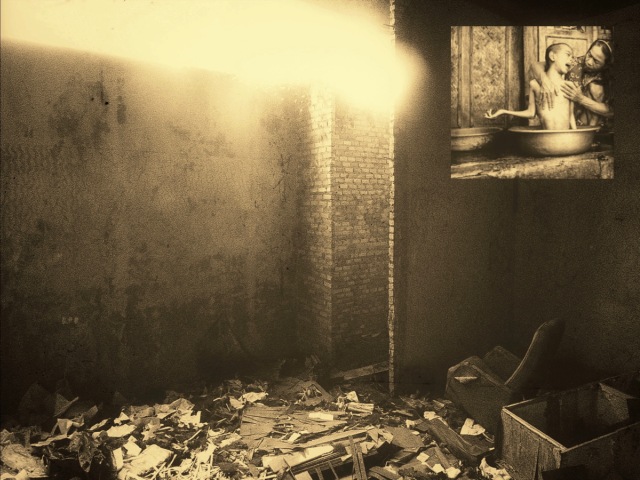



THE MOLLUSC
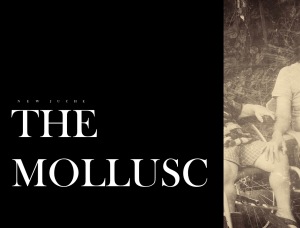
New Juche’s second PDF book release is now available. THE MOLLUSC is one of several contained aftergrowths from MOUNTAINHEAD. Click here for catalogue description and free download.



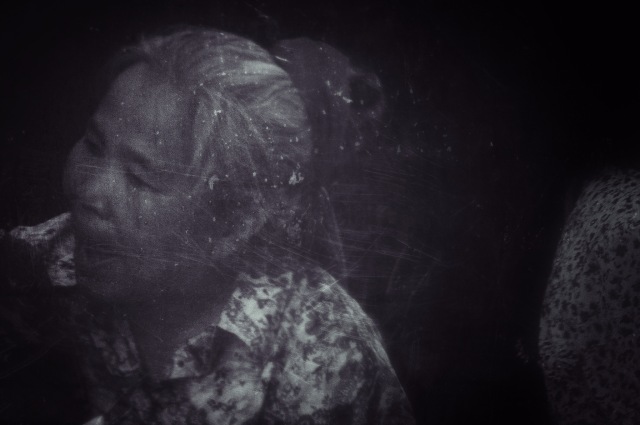

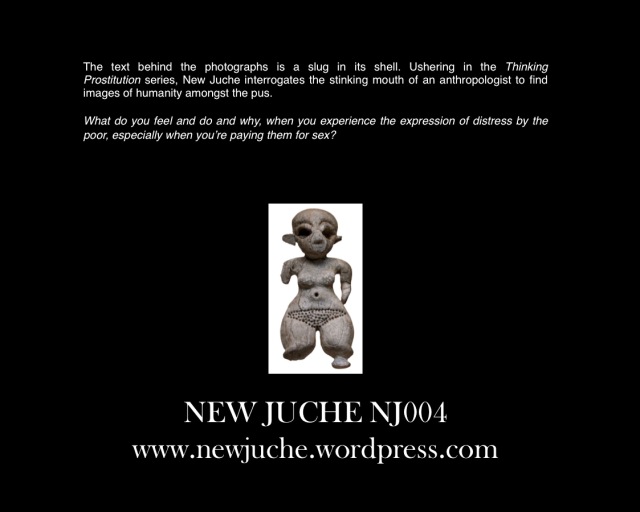
WASTELAND

WASTELAND is now available as a free PDF here.
The book is assembled from text and photography posted on this site over the last year, charting my deep love affair with an abandoned apartment complex called The Flowers. The posts have now been deleted, but their content can all be found in this release. The Flowers, which has become such a central part of my life, is about to be destroyed. I am pleased to preserve some essence of it in this book, along with some of the visions I received there, to which I still remain loyal.


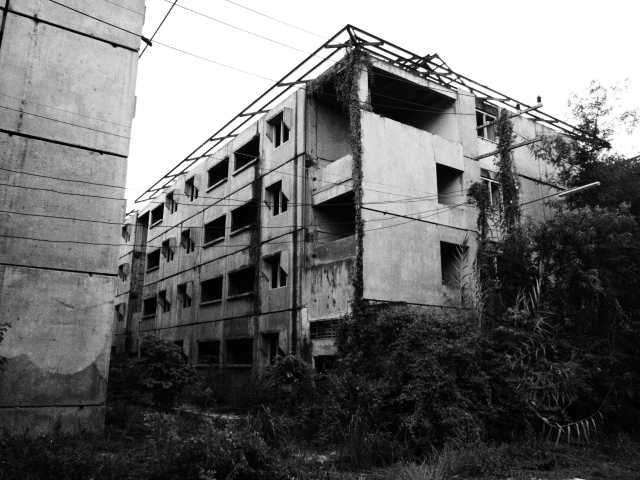




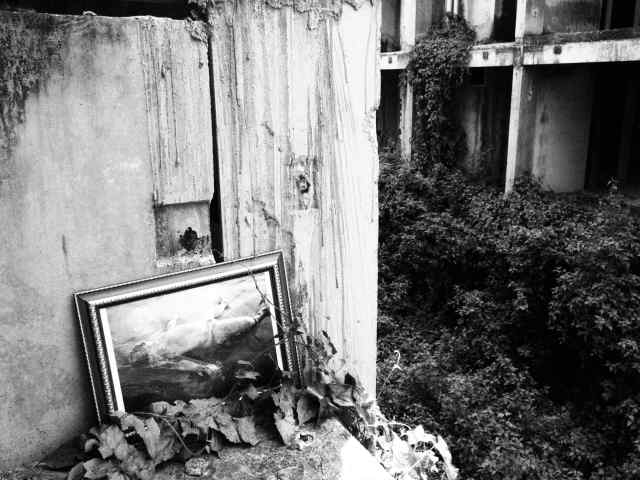
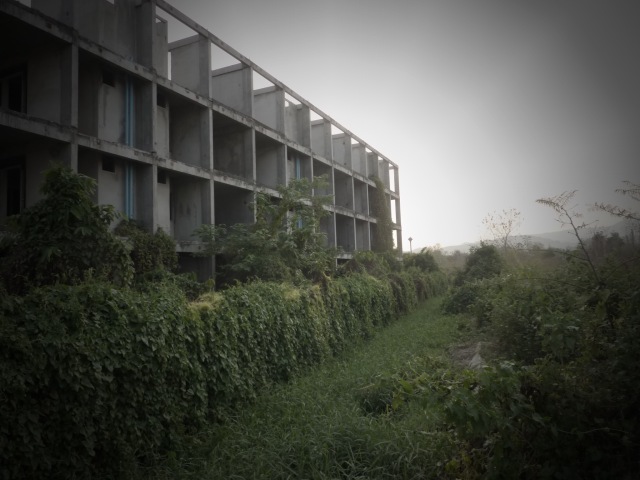

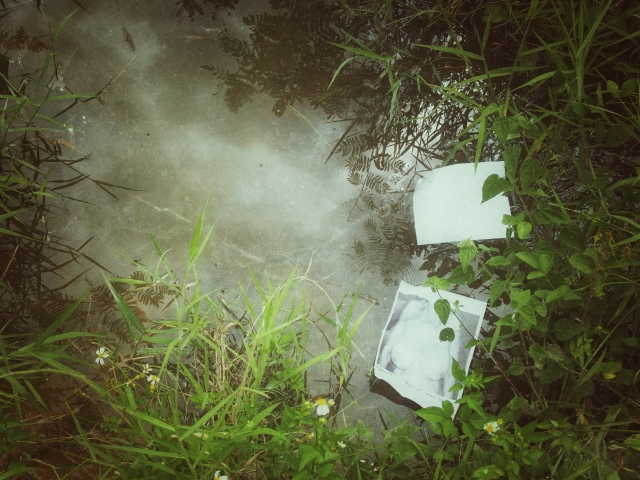

New Juche Whores Of Leith, Bangkok Fanny-Rat, 2007.
ambient and eerie sounds and distorted voices from interview of protagonists sex underworld of Bangkok and other zones of asiatic south-east area.
a kind of mondo-music.
i remember was a very interesting project but totally desappeared .
just this blog focused in photography side of this project
Now what to make of this one? As is the Bluesbunny custom, we dutifully read the sleeve prior to listening to the album. The title had caught our attention - "Bangkok Fanny-Rat" - but even that clue did not prepare us.
The sounds are ambient and eerie. The voices are distorted (intentionally, it would appear) and are interviews with veterans of the Bangkok sex scene. It all forms part of an aural nightmare as the rich western world meets the poor in Bangkok. "Mission to Ranong" had a worrying, cartoon like voice explaining his experiences on his trips to his that city with remarkable candour, almost revelling in the depravity. "I Fell in Love with a She/Male Stroker" featured an interview with a lady boy. The frankness will no doubt offend but it is an eye opener. Whilst we remember, read the sleeve notes carefully. Maybe the point was to shock but this was jaw dropping stuff. To its credit, there was nothing judgemental about any of this. To that end, the point of it all is a bit of a mystery. Is it exploitation like the old "mondo" movies? There seems to be no conclusion drawn and there is something almost ambivalent about it all. Maybe pointing the finger at the guilty is not such a good idea anyway as we might end up pointing that finger at ourselves if only for letting it happen?
Bluesbunny is not even sure that the music is important here. This album is more of a documentary of the human (and not just the male) psyche after the veneer of civilisation has been discarded and, from the evidence presented here, there can surely be no darker or more lonely place. Downright disturbing. - Bluesbunny www.bluesbunny.com/Reviews/ReviewID/443/xmps/11123

No comments:
Post a Comment
Note: Only a member of this blog may post a comment.